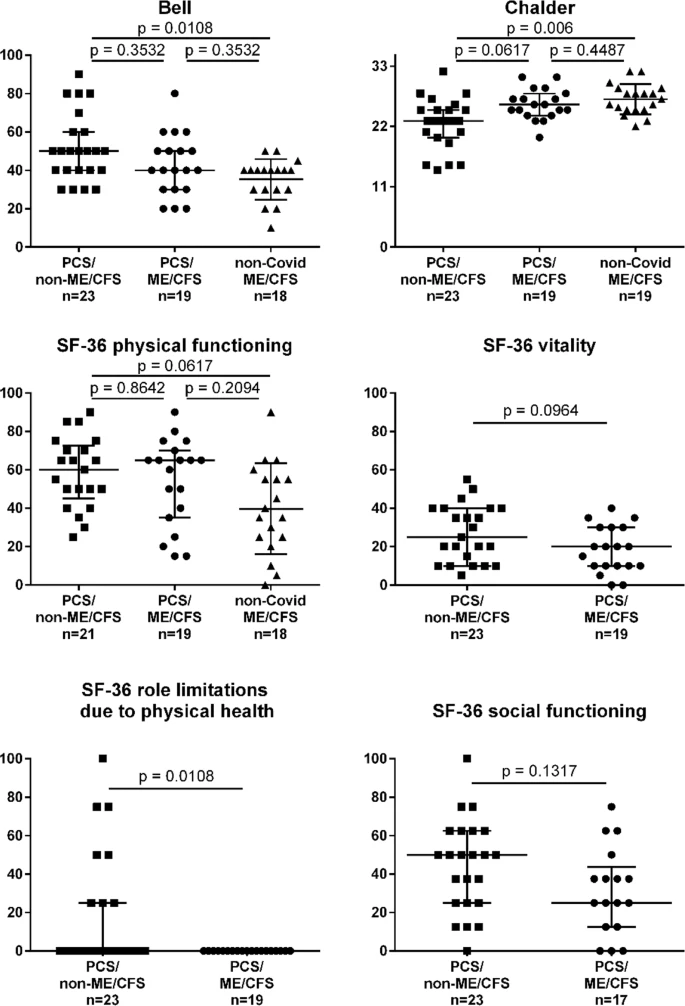A study published in Nature Communications found that, even after mild coronavirus disease 2019 (COVID-19), a subset of patients will develop symptoms which meet the diagnostic criteria for myalgic encephalomyelitis/chronic fatigue syndrome.
- Article
- Open Access
A prospective observational study of post-COVID-19 chronic fatigue syndrome following the first pandemic wave in Germany and biomarkers associated with symptom severity
Abstract
A subset of patients has long-lasting symptoms after mild to moderate Coronavirus disease 2019 (COVID-19). In a prospective observational cohort study, we analyze clinical and laboratory parameters in 42 post-COVID-19 syndrome patients (29 female/13 male, median age 36.5 years) with persistent moderate to severe fatigue and exertion intolerance six months following COVID-19. Further we evaluate an age- and sex-matched postinfectious non-COVID-19 myalgic encephalomyelitis/chronic fatigue syndrome cohort comparatively. Most post-COVID-19 syndrome patients are moderately to severely impaired in daily live. 19 post-COVID-19 syndrome patients fulfill the 2003 Canadian Consensus Criteria for myalgic encephalomyelitis/chronic fatigue syndrome. Disease severity and symptom burden is similar in post-COVID-19 syndrome/myalgic encephalomyelitis/chronic fatigue syndrome and non-COVID-19/myalgic encephalomyelitis/chronic fatigue syndrome patients. Hand grip strength is diminished in most patients compared to normal values in healthy. Association of hand grip strength with hemoglobin, interleukin 8 and C-reactive protein in post-COVID-19 syndrome/non-myalgic encephalomyelitis/chronic fatigue syndrome and with hemoglobin, N-terminal prohormone of brain natriuretic peptide, bilirubin, and ferritin in post-COVID-19 syndrome/myalgic encephalomyelitis/chronic fatigue syndrome may indicate low level inflammation and hypoperfusion as potential pathomechanisms.

No comments:
Post a Comment